5 Stages to Becoming A “Swammer”
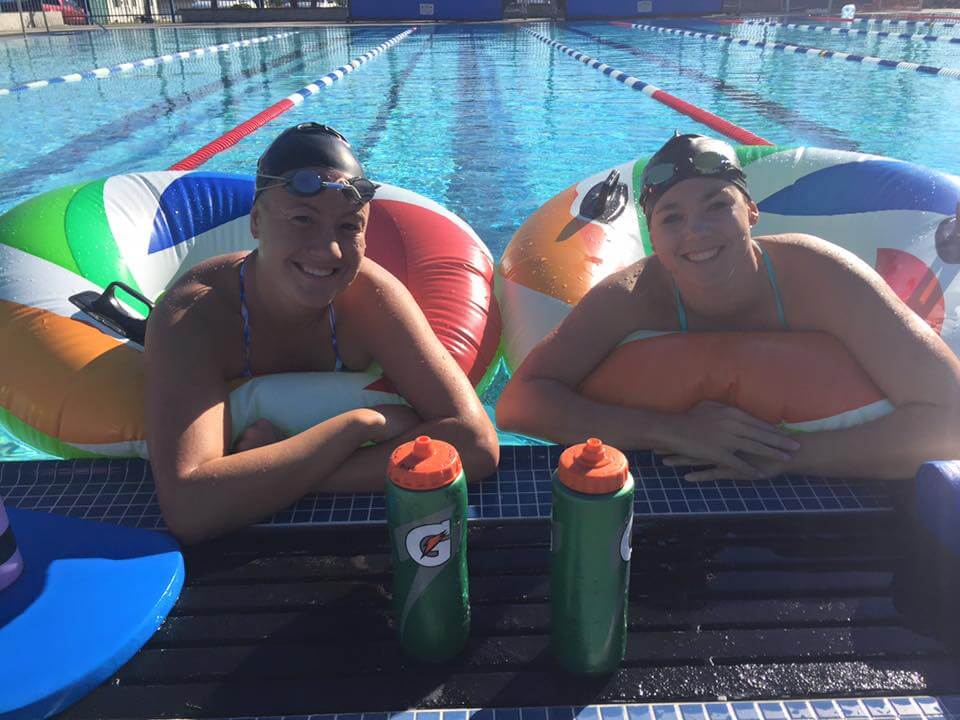
By Nicole E. Johnson, Swimming World College Intern
There are a lot of emotions that come along with finishing a college swimming career. My former collegiate swim captain, Anna Eckberg, is someone I’ve had the pleasure of swimming alongside this past season as she finished her swimming career and become a “swammer”. Eckberg defines a “swammer” as: an ex-swimmer, someone who is normally used to killing themselves five hours a day, six to seven days a week both mentally and physically, and has to adapt to actually having a life beyond the pool.
She started swimming when she was 4 years old and continued in the sport because she said she wasn’t good at anything but swimming. Like most college swimmers, Anna has swam on a club team her entire life and has made a lot of friends on all of the teams she has been on.
She really wanted to swim in college because she was scared she would not make friends without having a team. As it turns out, she did make friends outside of her team but a few of her best friends came from the sport. There’s a unique bond that comes from spending five hours a day with the same people; going through the same hardships and obstacles. It is nearly impossible not to grow close to teammates after what you go through together.
Reflecting back on her college career, she feels like she has learned so much more than the average college student. As far as her swimming career, she feels like she learned even more than the average collegiate athlete. Swimming requires so much more than physical stamina– it requires mental strength. One of the biggest jokes on our swim team is that our coach should pay for us to go to therapy because of how much mental stress we’re under.
1. Anxiety/Pressure
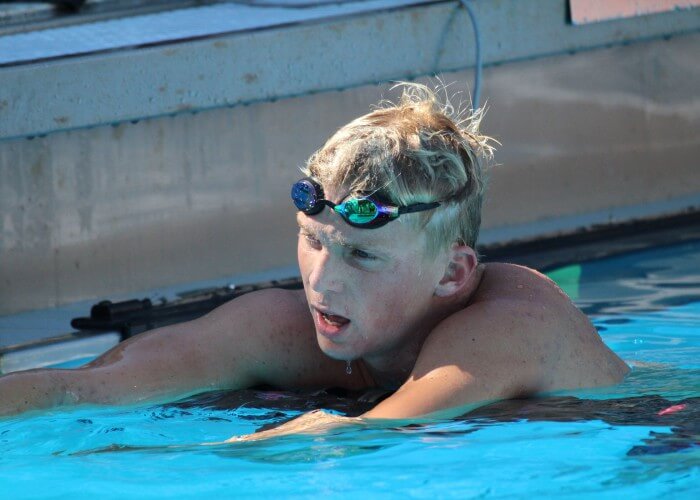
Photo Courtesy: Sue Borst
When it comes to finishing your college swimming career, there is always pressure to make sure that you have actually done the absolute best you can because this is your last chance. Everyone expects you to finish out on top because you’re a senior and you share that expectation for yourself.
2. Excitement
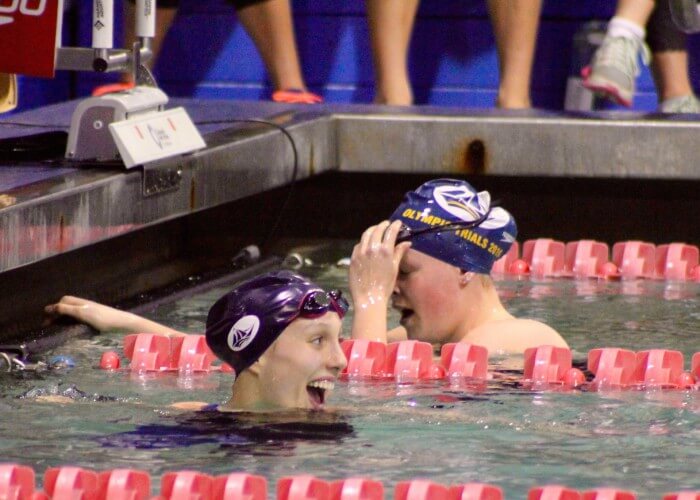
Photo Courtesy: Taylor Brien
Wait! I’m done? Once you touch that wall at the end of your race, you have touched it for the very last time. That feeling can be very exciting because you have worked so hard for that exact moment. For the first time in your life, you don’t have to worry about how much your coach is going to kill you at the next practice or making sure you work hard so that you can drop time the next time you swim.
3. Sadness
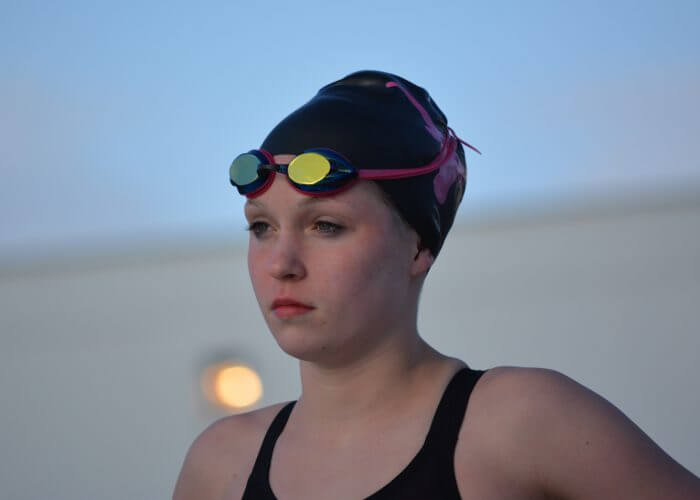
Photo Courtesy: Madison Kyler
Wait! I’m actually done? You mean I don’t have to wake up tomorrow morning for practice? I have to actually motivate myself to work out? After all of your many years of swimming, it’s all over. It’s also sad to move on from the teammates and coaches that you have known for so many years.
4. Uncertainty
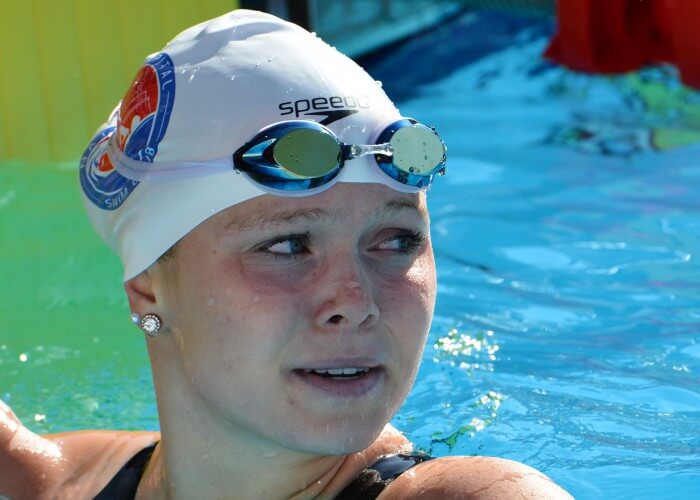
Photo Courtesy: Donna Nelson
Being done with college and swimming means that you have to figure out what to do next and find something else to spend your time on. For so many years, all you really know is swimming and it’s hard to look past all of it and remember that there is a future ahead that doesn’t always involve swimming.
5. Relief
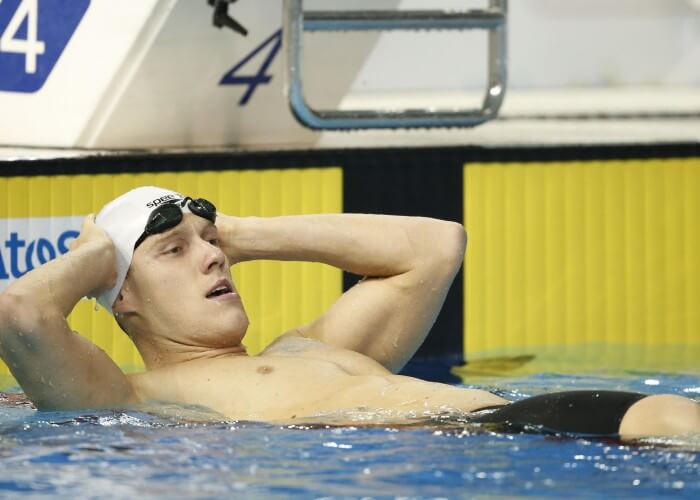
Photo Courtesy: Erich Schlegel/USA Today Sports Images
Hearing younger friends talk about where they’re going to swim in the summer, how much they have (or haven’t) been working out, and hearing them freak out about how out of shape they might be is so relieving because you’re no longer in that same boat. You’re finally no longer committed to showing up to morning and afternoon practices and making sure to eat (or not eat) certain things. You’re free.
Anna is such an encouragement and has great advice to anyone else who is coming close to being done with college swimming. She said she would advise the upcoming seniors to not pressure themselves to be the best, but rather focus on having fun and not taking for granted the unique opportunity you have been given.
As long as you can end your final season knowing that you put your best foot forward, you will feel successful. Don’t forget to focus on the relationships with your teammates; the aspects of the team that aren’t digits and yards.




You forgot the sixth step. Triathlons.